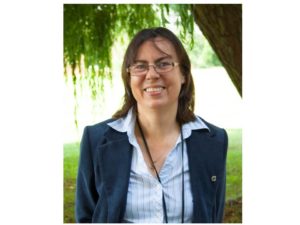SYNOPSIS OF CAREER / RESEARCH INTERESTS
Career Synopsis
I graduated with a degree in Biological Sciences from the University of Birmingham then studied for a PhD at the University of Nottingham. Following 2 years experience as a postdoctoral scientist at the Babraham Institute, Cambridge, I moved to the Department of Anatomy at the University of Bristol from 1979-1990 first as a lecturer, then as a Reader, being awarded a DSc from Bristol in 1992. I then returned to the Babraham Institute as a project leader for 4 years before taking up my present post as Professor of Veterinary Reproduction at the Royal Veterinary College, London, where I became the first female professor to be appointed to any UK veterinary school. During my time at the RVC I have held many positions of responsibility including Head of the Reproduction Group, Chair of the Graduate School Committee and member of Council. Externally, I have maintained an active participation on a wide variety of grants and science strategy review committees and journal editorial boards. For example, I was Chair of the steering committee for ARK-Genomics from its establishment by BBSRC at the Roslin Institute, Edinburgh in 2000 until 2007. I was a founding director of Genesis-Faraday, an organisation which sought to establish links between academia and the animal breeding industries in the UK; this organisation has since become part of the Knowledge Transfer Network. I have also been a panellist on many BBSRC grants committees and was a member of the Veterinary Advisory Committee of the Horserace Betting Levy Board for 11 years. I am actively involved with improving knowledge transfer to workers in livestock industries including veterinarians and farmers.
Research Interests
My main research focus is on farm animal reproduction. I have a longstanding interest going back to my PhD work into the causes of infertility in dairy cows and I have also worked extensively on various aspects of ovarian function, early pregnancy, placental development and parturition in cattle and sheep. The current main emphasis of my studies is in seeking to understand how metabolic and immunological signals influence fertility. I am also interested in aspects of growth and development in dairy calves which affect their later performance as an adult cow.
CAREER HIGHLIGHTS
In terms of research, I regard myself as lucky for being in the right place at the right time. My PhD work provided the opportunity to develop the first use of milk progesterone profiles to monitor ovarian activity in dairy cows. This technique has been very widely used since and as the technology has advanced it is now, 40 years later, becoming possible to incorporate these measurements into automatic milking systems. As a junior lecturer at Bristol, I was investigating ovarian peptides when I discovered a bioactive extract in the corpus luteum which caused strong stimulation of uterine contractions. As several of my colleagues were working on neurohypohyseal hormones, all the techniques were already available for us to be able to show that this was in fact oxytocin. This discovery led to a reappraisal of the regulation of luteolysis in ruminants. I am proud to have been awarded the Research Medal of the Royal Agricultural Society of England in 2006 and the Marshall Medal of the Society for Reproduction and Fertility in 2015. As a junior scientist, I benefitted enormously from a number of excellent mentors. I have subsequently supervised or co-supervised over 30 PhD students, and seeing their successful progress is a great pleasure.
VALUE OF SRF MEMBERSHIP
SRF has always been a friendly society while at the same time showcasing many exciting developments in reproductive biology. It encourages junior scientists. I also like the diverse range of species which are covered. You can hear about human diseases, rodent models, livestock breeding and conservation of zoo animals. All of these have differences in the way they regulate their fertility and the comparative aspects are often fascinating.



Recent Comments